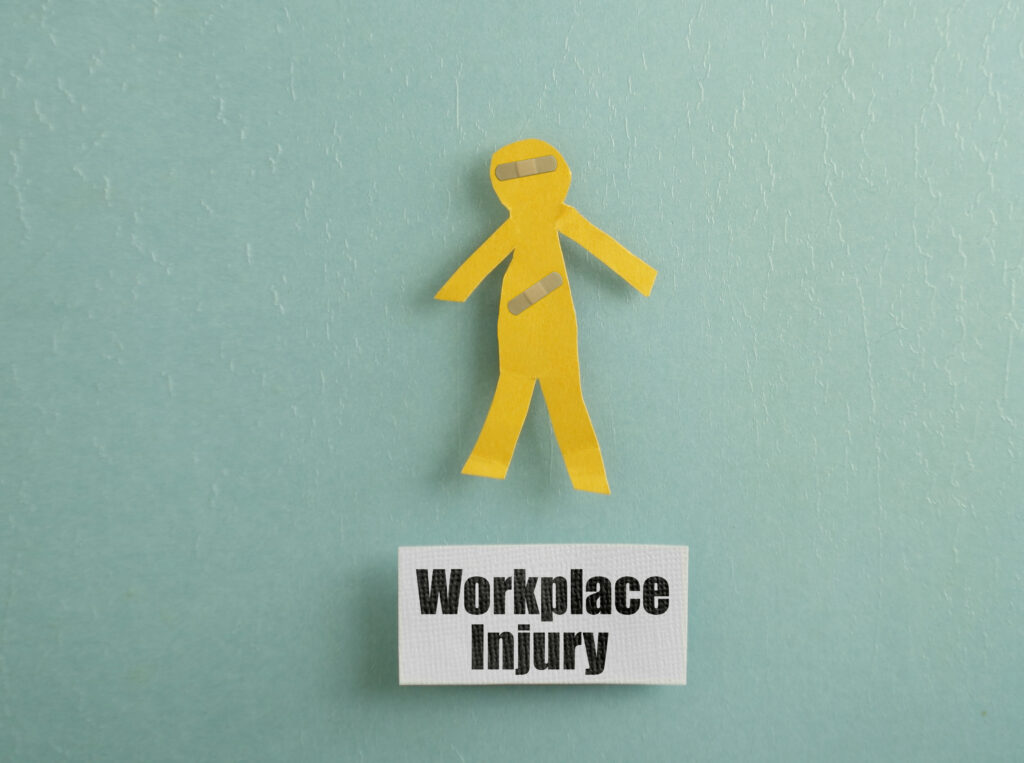Workplace accidents affect millions of people each year, often leaving them with significant medical expenses and injuries that prevent them from working. Thankfully, most injured workers are entitled to benefits under their state’s workers’ compensation program.
Workers’ compensation is a crucial financial safety net for employees who suffer work-related injuries or illnesses. It is a system that provides benefits, such as medical expenses and income replacement, to individuals who cannot work due to their on-the-job injuries or work-related illnesses. Importantly, workers’ compensation provides benefits for work-related injuries regardless of whose fault an accident was.
Understanding the basics of workers’ compensation and the importance of filing a claim is essential for injured workers seeking the support they need during their recovery process.
Filing a workers’ compensation claim is vital for injured workers as it provides them with the financial and medical resources needed to recover from their injuries and return to work. That said, workers’ compensation insurers do everything possible to limit how much they pay out and will deny claims whenever possible.
If you have a workers’ compensation claim, it is best to retain an attorney as soon as possible. A workers’ compensation lawyer in Huntsville will review your case, file your claim, and make sure you get the benefits you deserve.
Below, we discuss the most important steps of filing a worker’s compensation claim. To discuss the specifics of your case and obtain legal representation, reach out to a workers’ compensation attorney near you.
Reporting the Injury

Workplace accidents can cause a wide variety of serious injuries, including broken bones, soft tissue injuries, traumatic brain injuries, or even spinal cord injuries. When you experience a workplace injury, you should report it to your employer as soon as possible. Notifying your employer promptly is essential for several reasons.
- First and foremost, reporting the injury as soon as possible ensures that you receive the proper medical attention you need without delay. It allows your employer to provide immediate medical assistance or call an ambulance if necessary.
- By reporting the injury promptly, you also protect your rights and ensure you are eligible for workers’ compensation benefits.
Failing to report the injury in a timely manner can have serious consequences. Most states have specific deadlines for reporting workplace injuries, and if you miss these deadlines, your claim may be denied altogether. Additionally, if you delay reporting the injury, your employer may argue that it did not occur in the workplace or question the severity of your injury. Immediately reporting the incident helps establish a clear timeline and strengthens your case for compensation.
Be sure to provide a detailed and accurate account of how the injury occurred and the extent of your injuries. Be sure to document the incident and any visible injuries with photographs, if possible. Keep a record of any conversations or correspondence related to the injury, including emails or notes from your employer. This documentation can be invaluable if your claim has any disputes or inconsistencies.
Seeking Medical Treatment
Seeking prompt and appropriate medical treatment for a work-related injury is of utmost importance. Not only does it help ensure a speedy recovery, but it also plays a crucial role in the workers’ compensation process. When you seek medical treatment for your work injury, it protects your health and establishes a medical record that will be essential for your claim.
When selecting a healthcare provider, look for one with experience treating work-related injuries. They should be knowledgeable about the workers’ compensation process and understand the specific requirements for documentation and reporting. A healthcare provider who is familiar with workers’ compensation cases will be better equipped to provide the necessary records and support for your claim.
Additionally, be sure to communicate all the necessary details of your injury to your healthcare provider. Explain the circumstances in which the injury occurred, the symptoms you are experiencing, and any limitations it has placed on your ability to work. This will help the provider accurately diagnose and treat your injury, as well as provide the necessary documentation for your workers’ compensation claim.
Gathering Evidence

After a work-related injury, you should gather relevant evidence to support your case. Providing solid evidence can help establish the extent of your injuries and the impact they have had on your life. Here are some key tips for gathering the necessary evidence:
- Obtain Medical Records – Obtain copies of all medical records related to your work-related injury. This includes emergency room visits, hospital stays, medical tests, and treatments. These records will help demonstrate the severity of your injuries and the medical care you have received.
- Get Witness Statements – If there were any witnesses to your accident or injury, gather their statements as they can provide valuable testimony. Witness statements can corroborate your version of events and support your claim.
- Document Your Expenses – Keep track of all the expenses incurred due to your work-related injury. This includes medical bills, prescriptions, rehabilitation costs, transportation expenses, and any other out-of-pocket expenses. These documents will help quantify the financial impact of your injuries.
If you have suffered a work-related injury, you should be sure to collect evidence regarding your accident as soon as you can. Over time, evidence can be lost or intentionally destroyed, so any delay can jeopardize your ability to obtain benefits.
Filing the Claim
When filing a workers’ compensation claim, it’s important to clearly understand the necessary steps and deadlines involved. By following the right procedures, you can ensure that your claim is properly processed and you receive the compensation you deserve. Here is a step-by-step guide to help you through the process:
- Report the incident: The first step is to report the workplace injury or illness to your employer as soon as possible. Make sure to provide detailed information about the incident and any witnesses involved.
- Seek medical treatment: It’s crucial to seek medical treatment for your injuries immediately. Not only is it important for your health, but it also serves as evidence for your workers’ compensation claim.
- Complete the necessary forms: Your employer should provide you with the appropriate forms to fill out for your claim. Make sure to accurately and thoroughly complete all required sections and submit them within the specified deadline.
- Gather supporting documentation: Gather any supporting documentation related to your injury or illness along with the claim forms. This may include medical records, witness statements, and any additional evidence that can strengthen your case.
- Follow up with your claim: Stay informed about the progress of your claim by keeping in touch with your employer’s workers’ compensation insurance carrier. This will help ensure that your claim is being processed and that any necessary additional information is provided promptly.
Remember, filing a workers’ compensation claim can be complex, and having the guidance of an experienced attorney can greatly increase your chances of a successful outcome. An attorney can navigate the legal processes, negotiate with insurance companies, and advocate for your rights. Don’t hesitate to reach out for professional assistance to ensure you receive the compensation you deserve.
The Claims Process
After you file your claim, there are several stages you can expect to go through in the workers’ compensation process. Each stage has its own set of requirements and procedures.
First, your claim will undergo an initial review by the insurance company. During this stage, they will assess the validity of your claim and determine if you meet the necessary criteria for benefits. It is important to provide all relevant documentation and evidence to support your claim during this stage.
If your claim is approved, you will enter the negotiation phase. This is where the settlement negotiations happen between your attorney and the opposing party. Your attorney will strive to secure the maximum compensation possible for your injuries and losses. Having an experienced attorney by your side who can effectively advocate for your best interests during this stage is crucial.

If the insurance company does not make a reasonable settlement offer, your case may proceed to a hearing or trial. At this stage, your attorney will present your case before a judge or jury, who will decide your eligibility for workers’ compensation benefits. Having a skilled attorney who is well-versed in workers’ compensation law and can effectively present your case in court is important.
Throughout the entire claims process, keep open lines of communication with your attorney and provide them with any requested information or documentation promptly. This will help ensure that your case progresses smoothly and you have the best chance of receiving the compensation you deserve.
Appealing a Denied Claim
Sometimes, your workers’ compensation claim may be denied despite your best efforts. It can be frustrating and disheartening – but don’t lose hope. If you receive a denial, you must retain a lawyer immediately. They can navigate the appeals process and fight for the benefits you rightfully deserve.
When you hire a lawyer to handle your appeal, you’re putting yourself in the best position to achieve a successful outcome. These legal professionals focus on handling workers’ compensation claims and have the experience to navigate the complex legal system. They understand the intricacies of the appeals process and can gather the evidence, build a strong case, and argue on your behalf.
The appeals process generally involves filing a written appeal and attending a hearing before an administrative law judge. Your lawyer will compile all the necessary documentation, medical records, and evidence to strengthen your case. They will ensure that your appeal is filed within the designated deadline and represent you effectively in the hearing.
While you can choose to handle the appeal yourself, it’s important to remember that the workers’ compensation system is complex, and any mistakes or missteps can jeopardize your chances of getting the benefits you deserve. Retaining a lawyer gives you the best chance of a successful appeal and maximum compensation.
Don’t let a denied workers’ compensation claim deter you from seeking the benefits you are entitled to. Contact a dedicated lawyer who will fight for your rights and guide you through the appeals process. Remember, you don’t have to face this challenging situation alone – an experienced attorney is ready to advocate for you every step of the way.
How a Workers’ Compensation Attorney Can Help You
Filing a workers’ compensation claim can be a complex and overwhelming process. From understanding the intricacies of the law to navigating the administrative procedures, it’s easy to feel lost and uncertain. This is where a workers’ compensation attorney can be a valuable ally in your journey toward receiving the benefits you deserve.
One of the key ways a workers’ compensation attorney can benefit you is by providing guidance and support throughout the entire process. They have a deep understanding of the law and can explain your rights and entitlements in a way that is easy to understand. They will review your case, assess the strength of your claim, and gather and organize the necessary documentation to support your case.

Moreover, a workers’ compensation lawyer will handle all the communication and negotiations with the insurance company on your behalf. This can be especially beneficial if the insurance company tries to deny or lowball your claim. Your attorney will protects your rights under the law and fight for the maximum compensation you deserve.
Filing a workers’ compensation claim can be overwhelming, but you don’t have to go through it alone. By consulting with a workers’ compensation attorney, you can have peace of mind knowing that you have an experienced advocate on your side, fighting for your rights and ensuring you receive the compensation you deserve. If you’re navigating a workers’ compensation claim, don’t hesitate to reach out to a workers’ compensation lawyer near you for the support and representation you need.
Consult a Workers’ Comp Lawyer Today
After a workplace injury, the last thing you need is additional stress. The good news is you don’t have to figure out how to file your workers’ compensation claim alone, as professional help is available. Seek your free consultation with a workers comp’ attorney in your area right away. Doing so can immediately improve your overall situation in a stressful time.

